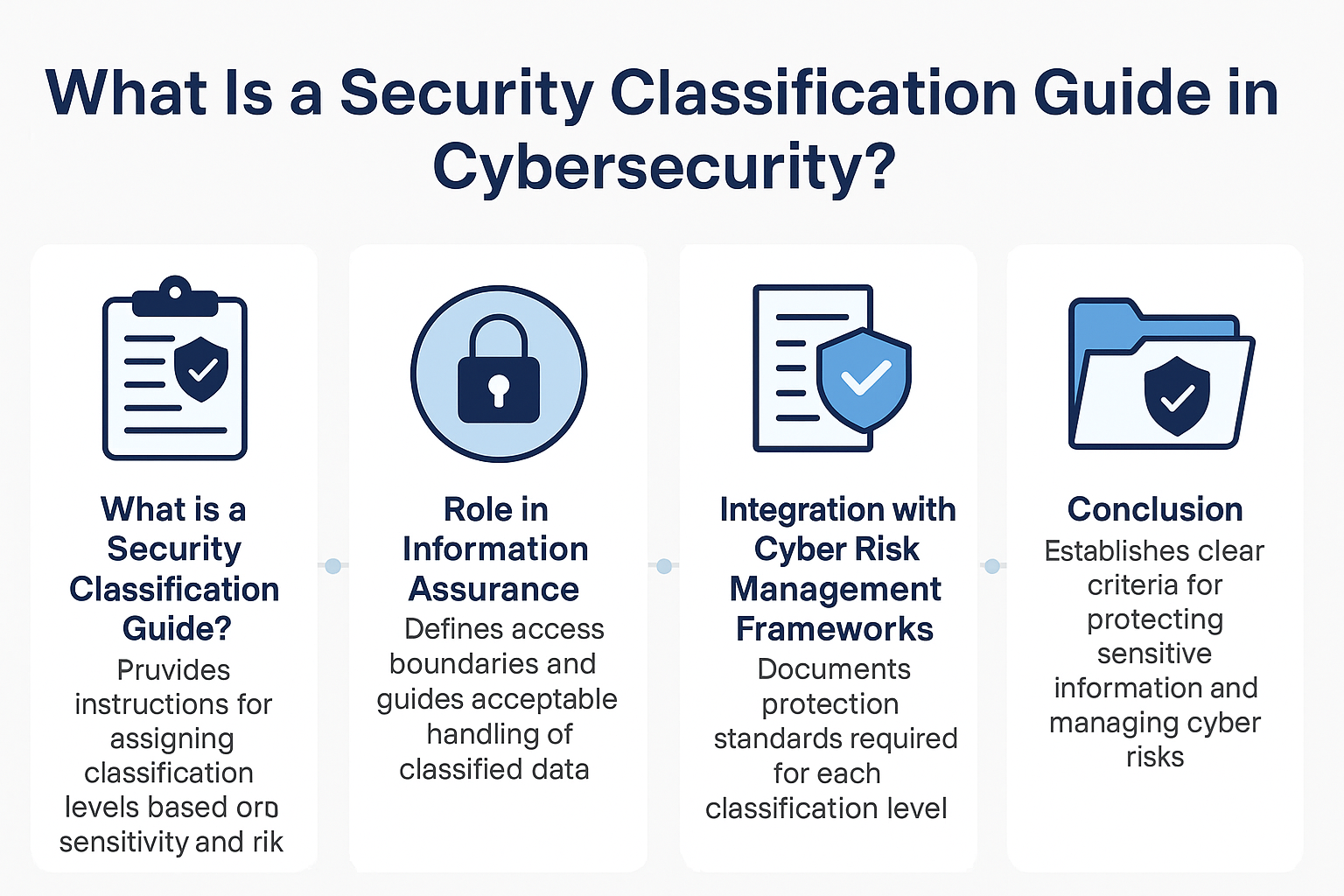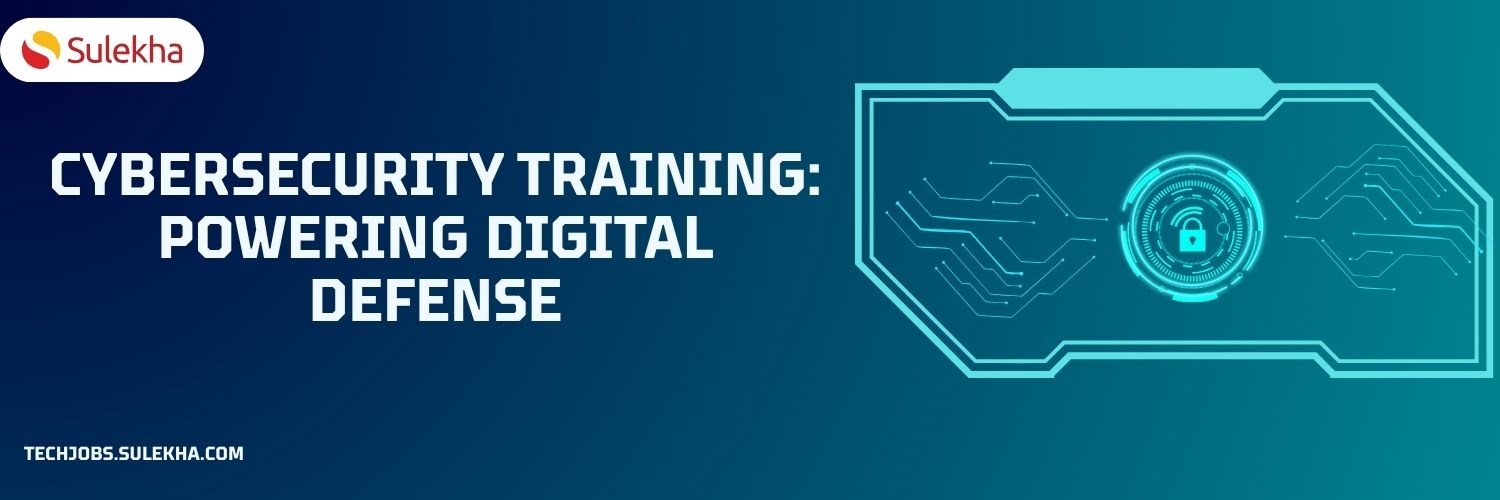How to Become a Security Architect: 2024 Career Guide

How to Become a Security Architect: 2024 Career Guide
In today's fast-paced and digitally interconnected world, the role of a Security Architect has emerged as a highly demanding and critical career path. The threat landscape has expanded exponentially as organizations undergo extensive digital transformations, leverage cloud technologies, embrace IoT, and interconnect diverse systems.
Security Architects stand at the forefront of this defense, designing and implementing comprehensive security measures to safeguard organizations against evolving cyber threats. Several key factors propel the demand for Security Architects. Firstly, cyber attacks' ever-increasing frequency and complexity require professionals with expertise to architect resilient and adaptive security solutions.
What does a security architect do?
- The prominent responsibility of security architects is managing a crucial role within the IT organization or security department. Moreover, protecting organizations from digital threats is paramount.
- This blog will discuss crucial roles, responsibilities, and skills to become a security architect.
Tasks and responsibilities
Every day, the responsibilities of security architects vary depending on the industry and organization. Here are some tasks you might perform in this role:
1. Architecting Secure Systems: Design and implement secure architectures, considering business needs, budget constraints, and evolving threats.
2. Assessing and Managing Risks: Regularly analyze vulnerabilities, prioritize risks, and implement mitigation strategies before they become breaches.
3. Implementing and Integrating Tools: Select and deploy firewalls, intrusion detection systems, and other security solutions, ensuring seamless integration for optimal effectiveness.
4. Orchestrating Incident Response: Developing and leading the implementation of incident response plans, minimizing damage, and ensuring swift attack recovery.
5. Bridging the Communication Gap: Translate complex security concepts into digestible language for technical and non-technical stakeholders, driving awareness and buy-in.
6. Cultivating Security Culture: Champion a security culture within the organization through training programs, awareness campaigns, and ongoing education initiatives.
7. Adapting to the Evolving Landscape: Continuously learn new skills, stay abreast of emerging threats and vulnerabilities, and update defenses and strategies proactively.
8. Measuring and Improving: Regularly evaluate the effectiveness of security measures, identifying areas for improvement and optimizing overall security posture.
Security architect skills
Security architect skills are crucial for designing and implementing a secure and resilient IT infrastructure. Their expertise is essential for safeguarding organizations from cyber threats and ensuring their systems and data's confidentiality, integrity, and availability.
1. Network Security:
- Firewalls, intrusion detection and prevention systems (IDS/IPS), network segmentation, virtual private networks (VPNs), and network access control (NAC).
2. Operating Systems and Applications:
- Security features and configurations of major operating systems (Windows, Linux, macOS).
3. Cryptography and Data Security:
- Encryption algorithms, key management, digital signatures, secure hashing.
- Data loss prevention (DLP) and data classification techniques.
- Cloud security: Securing data and applications in cloud environments like AWS, Azure, and GCP.
4. Security Tools and Technologies:
- Familiarity with various security tools, including firewalls, IDS/IPS, vulnerability scanners, security information and event management (SIEM) systems, and endpoint protection software.
5. Risk Management and Vulnerability Assessment:
- Must have risk assessment methodologies and frameworks like the NIST Cybersecurity Framework. Moreover, you must have Vulnerability scanning and penetration testing techniques and skills.
6. Scripting language:
- Harness the power of Python or PowerShell to automate tasks and unlock a new level of efficiency in your work.
Security architect non-technical workplace skills:
Communication Skills:
- Effective written and verbal communication skills are essential for conveying complex security concepts to technical and non-technical stakeholders.
Leadership and Teamwork:
- Leadership skills are vital for inspiring teams and influencing security best practices across the organization. Collaboration with diverse teams, including legal, compliance, and business units, requires strong teamwork and leadership abilities.
Problem-Solving and Analytical Thinking:
- Critical thinking and problem-solving skills enable Security Architects to analyze security issues, identify root causes, and propose effective solutions. Analytical thinking is crucial for assessing and prioritizing security risks.
Adaptability and Learning Agility:
- Adapting to evolving security threats and technologies is essential. Continuous learning and staying updated on industry trends demonstrate a commitment to staying ahead in cybersecurity.
Interpersonal Skills:
- Understanding different perspectives and negotiating security requirements contribute to a collaborative and inclusive security culture.
Time Management:
- Ensure that security initiatives align with organizational goals and are executed promptly.
Why pursue a career in security architecture
Pursuing a career in security architecture is compelling for several reasons. Security architects play a critical role in defending organizations against cyber threats by designing robust and adaptive security strategies. With the escalating frequency of cyberattacks, the demand for skilled security architects is high, offering professionals lucrative opportunities and continuous career growth.
Security architect salary
Security architects are often among the highest-paid members of a cybersecurity team. According to Glassdoor, the estimated total pay for security architects in the US is $245,373 annually. This figure includes an average base salary of $151,437 and $93,937 in additional pay. Your salary will depend on your company, location, and experience, among other factors.
Job Outlook
Cybersecurity is an on-demanding career path across various industries, from IT, finance, and defense to government agencies. Cybersecurity-related jobs have witnessed unforeseen opportunities for freshers and professionals. According to the US Bureau of Labor Statistics, cybersecurity architecture, security architecture, and many roles are projected to grow by 32 percent between 2022 and 2032. It may be an average growth, but it is considered a steady growth rate for all occupations.
In the US, cybersecurity job openings are winding up comparatively than other IT-based roles in states like New York, California, Texas, Florida, North Carolina, Virginia, Georgia, and Maryland- the most opportunities for those with the right skills.
Security architect career paths
It is considered an advanced-level job role within cybersecurity. Career Paths in Security Architecture include:
- Leadership Track: Grow your team and oversee security for large organizations, aiming for executive roles in the field.
- Specialization Path: Hone your skills in specific areas like cloud, network, or application security, becoming a sought-after expert.
How to become a security architect
To become a successful security architect, you must follow a few crucial steps that help you land your dream job role in the intended organization. Embarking on the journey to become a security architect entails honing security and leadership skills through hands-on experience in information security. If this aligns with your career aspirations, here's a roadmap to guide you on this path.
Start with an entry-level cybersecurity job:
When you intend to begin your career path in cybersecurity, commence from entry-level job roles. There are many entry-level job roles like Security Analyst, Junior Security Consultant, Network Security Analyst, Information Security Analyst, Cybersecurity Analyst, etc. So, all we need to do is take crucial steps to enroll in entry-level courses.
Security architects typically transition to the role after getting several years of experience in the cybersecurity field. A review of job listings on platforms like LinkedIn may reveal prerequisites spanning three to eight years of prior experience in information security.
Ready to break into security? Explore these rewarding entry-level roles, with average salaries starting at:
- Cybersecurity analyst: $93,211
- IT auditor: $86,563
- Security specialist: $58,751
- Incident responder: $52,841
The salary mentioned above is an average pay scale, but the pay scale may differ based on the industry, experience, and location. After a year or two of experience, you could move on to roles like penetration tester, cybersecurity consultant, or security engineer as part of your career path toward becoming a security architect.
5 Cybersecurity Career Paths
- Engineering and architecture
- Incident response
- Management and administration
- Consulting
- Testing and hacking
Consider a degree:
Eighty percent of posts on the job portals require a bachelor's degree, and only 22 percent of companies demand graduate degrees.
But is it possible to get a job in cyber security without an IT-related degree? Following one crucial step opens up multiple career opportunities and makes you a more competitive candidate in your job search.
If you have a degree in computer science, cybersecurity, information technology, or a related field, you will be the person recruiters are looking for.
Develop your cybersecurity skills:
If you have prior experience in the field of IT, you may possess specific technical proficiencies that are essential for pursuing a career as a security architect. However, even if you lack any prior experience in cybersecurity, you can acquire these skills by enrolling in online courses and boot camps or pursuing a cybersecurity degree program.
Get certified.
Another method to acquire additional expertise is obtaining a cybersecurity certification. Relevant certifications for aspiring security architects may include:
- Certified Information Systems Security Professional (CISSP)
- Certified Information Security Manager (CISM)
- Certified Ethical Hacker (CEH)
Cybersecurity specialists sometimes acquire many certifications throughout their careers. Pursuing a primary certification such as Security+ or Systems Security Certified Practitioner (SSCP) might be beneficial if you aim to enter the sector.
Get started in cybersecurity:
If you are prepared to commence a career in cybersecurity, consider enrolling in the Cybersecurity Professional Certificate program. Learn to use tools crucial for the job, such as Playbook, Splunk, and Chronicle. This program is intended to assist people who have never worked in cybersecurity to obtain their first job at the pace that suits them.
In conclusion, navigating the path to becoming a Security Architect in 2024 requires a strategic blend of technical expertise, continuous learning, and hands-on experience in cybersecurity. As the digital landscape evolves, the role of a Security Architect remains pivotal in safeguarding organizations against emerging threats.
Embrace opportunities for professional growth, stay informed about industry trends, build a comprehensive skill set to meet the role's demands, and excel in shaping resilient and adaptive security architectures for the future. Your journey toward becoming a Security Architect is not just a career choice; it's a commitment to fortifying the digital foundations of tomorrow's secure and connected world.
Find a course provider to learn Cyber Security
Java training | J2EE training | J2EE Jboss training | Apache JMeter trainingTake the next step towards your professional goals in Cyber Security
Don't hesitate to talk with our course advisor right now
Receive a call
Contact NowMake a call
+1-732-338-7323Take our FREE Skill Assessment Test to discover your strengths and earn a certificate upon completion.
Enroll for the next batch
hands on cyber security training
- Mar 2 2026
- Online
hands on cyber security training
- Mar 3 2026
- Online
hands on cyber security training
- Mar 4 2026
- Online
hands on cyber security training
- Mar 5 2026
- Online
hands on cyber security training
- Mar 6 2026
- Online
Related blogs on Cyber Security to learn more

How Security Classification Guides Strengthen Data Protection in Modern Cybersecurity
A Security Classification Guide (SCG) defines data protection standards, ensuring sensitive information is handled securely across all levels. By outlining confidentiality, access controls, and declassification procedures, SCGs strengthen cybersecuri

What Is a Security Classification Guide in Cybersecurity?
A Security Classification Guide (SCG) defines how to categorize information assets by sensitivity, with clear instructions from authorized officials to ensure consistent, compliant data handling.

Cybersecurity Training: Powering Digital Defense
Explore top cybersecurity training programs in the USA to meet rising demand in digital defense. Learn about certifications, salaries, and career opportunities in this high-growth field.

What Does a Cybersecurity Analyst Do? 2025
Discover the vital role of a Cybersecurity Analyst in 2025, protecting organizations from evolving cyber threats through monitoring, threat assessment, and incident response. Learn about career paths, key skills, certifications, and why now is the be

What essential skills and trends should cybersecurity professionals navigate in 2024?
Cybersecurity professionals in 2024 must master a diverse skillset, from cloud security and AI to soft skills like communication and problem-solving, to stay ahead of evolving cyber threats and regulations.

What Does a Cybersecurity Analyst Do?
Learn about the role of a Cybersecurity Analyst, responsible for protecting an organization's computer networks from cyberattacks.

10 Popular Cybersecurity Certifications
From CompTIA Security+ to CISSP, these certifications can boost your career and demonstrate your commitment to protecting computer systems and networks.

What are the most popular technical certifications for future career advancement?
Unlock your potential with insights into 5 popular technical certifications for future career growth, spanning cybersecurity, blockchain, cloud computing and more. Explore pathways for professional advancement today.

Tips to get a job in top companies - Find out about the strategy and preparation to get started with Cybersecurity
As companies adopt cloud services, IoT devices, and remote work solutions, their attack surface expands. Cybersecurity experts are essential to ensure the security of these technologies and networks. The expertise of cybersecurity specialists bolster
Latest blogs on technology to explore

Drug Safety & Pharmacovigilance: Your 2026 Career Passport to a Booming Healthcare Industry!
Why This Course Is the Hottest Ticket for Science Grads & Healthcare Pros (No Lab Coat Required!)" The Exploding Demand for Drug Safety Experts "Did you know? The global pharmacovigilance market is set to hit $12.5B by 2026 (Grand View Research, 202

Launch Your Tech Career: Why Mastering AWS Foundation is Your Golden Ticket in 2026
There’s one skill that can open all those doors — Amazon Web Services (AWS) Foundation

Data Science in 2026: The Hottest Skill of the Decade (And How Sulekha IT Services Helps You Master It!)
Data Science: The Career that’s everywhere—and Nowhere Near Slowing Down "From Netflix recommendations to self-driving cars, data science is the secret sauce behind the tech you use every day. And here’s the kicker: The U.S. alone will have 11.5 mill

Salesforce Admin in 2026: The Career Goldmine You Didn’t Know You Needed (And How to Break In!)
The Salesforce Boom: Why Admins Are in Crazy Demand "Did you know? Salesforce is the 1 CRM platform worldwide, used by 150,000+ companies—including giants like Amazon, Coca-Cola, and Spotify (Salesforce, 2025). And here’s the kicker: Every single one

Python Power: Why 2026 Belongs to Coders Who Think in Python
If the past decade was about learning to code, the next one is about coding smarter. And in 2026, the smartest move for any IT enthusiast is learning Python — the language that powers AI models, automates the web, and drives data decisions across ind

The Tableau Revolution of 2025
"In a world drowning in data, companies aren’t just looking for analysts—they’re hunting for storytellers who can turn numbers into decisions. Enter Tableau, the #1 data visualization tool used by 86% of Fortune 500 companies (Tableau, 2024). Whether

From Student to AI Pro: What Does Prompt Engineering Entail and How Do You Start?
Explore the growing field of prompt engineering, a vital skill for AI enthusiasts. Learn how to craft optimized prompts for tools like ChatGPT and Gemini, and discover the career opportunities and skills needed to succeed in this fast-evolving indust

How Security Classification Guides Strengthen Data Protection in Modern Cybersecurity
A Security Classification Guide (SCG) defines data protection standards, ensuring sensitive information is handled securely across all levels. By outlining confidentiality, access controls, and declassification procedures, SCGs strengthen cybersecuri

Artificial Intelligence – A Growing Field of Study for Modern Learners
Artificial Intelligence is becoming a top study choice due to high job demand and future scope. This blog explains key subjects, career opportunities, and a simple AI study roadmap to help beginners start learning and build a strong career in the AI

Java in 2026: Why This ‘Old’ Language Is Still Your Golden Ticket to a Tech Career (And Where to Learn It!
Think Java is old news? Think again! 90% of Fortune 500 companies (yes, including Google, Amazon, and Netflix) run on Java (Oracle, 2025). From Android apps to banking systems, Java is the backbone of tech—and Sulekha IT Services is your fast track t
